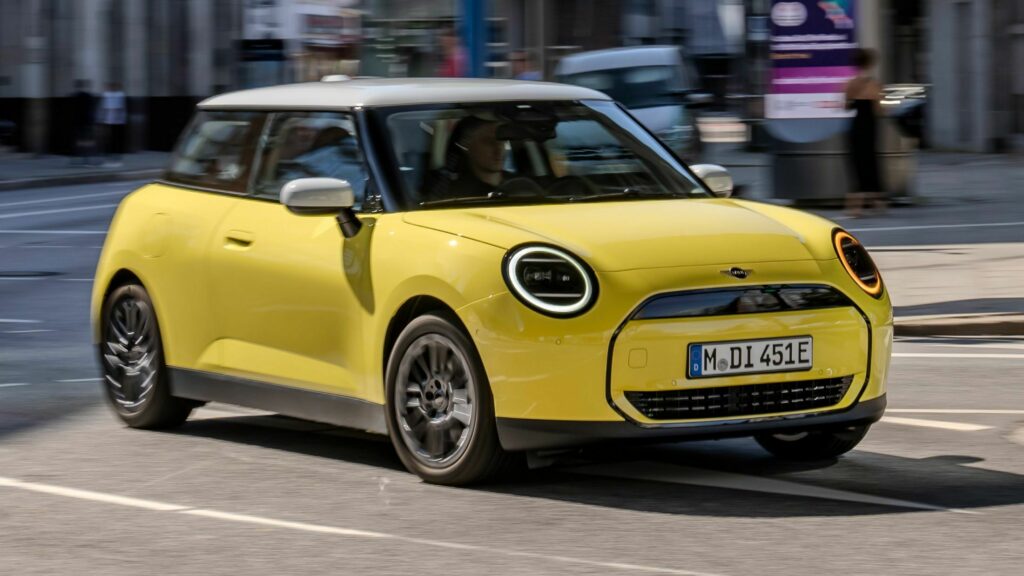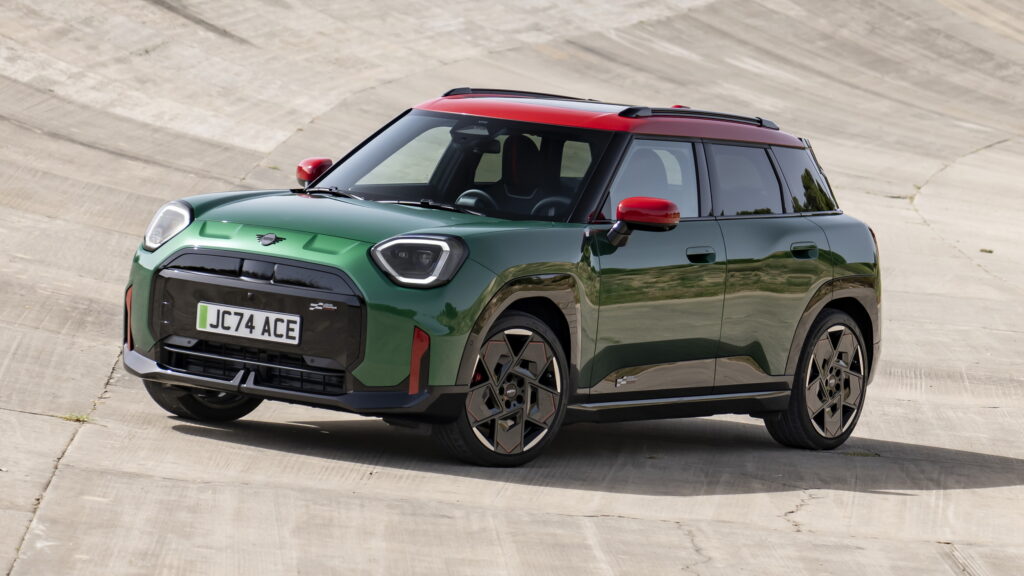- The next generation of electric models from Mini could swap to an RWD layout.
- The reason is that BMW‘s new EV-dedicated platform isn’t compatible with FWD.
- The change hasn’t been officially confirmed, but Mini leaves room for speculation.
Mini could be gearing up for a major shift to rear-wheel drive for its next-generation EVs, thanks to shared platforms with BMW. Although nothing is officially confirmed yet, BMW’s upcoming Neue Klasse models, built on a flashy new architecture set to debut next year, are reportedly only compatible with RWD and AWD configurations. This could mean Mini will need to adapt to the new setup.
More: Mini Reportedly Cancels Plans For Electric Cooper Convertible
Up until now, every Mini model since the iconic original from 1959 has been front-wheel drive, except for the All4 versions of some Countryman and Clubman trims that offered all-wheel drive. However, this might change as Mini transitions to BMW Group’s next electric architecture.
New Platform, New Possibilities
The new platform – making its debut in the “Neue Klasse” BMW iX3 later this year, supports single, dual, triple, and even quadruple electric motors. However, the base single-motor versions can only be RWD because the rear-mounted motor is the only one that includes an integrated gearbox.
According to BMW Group engineers who spoke with Autocar, there are no current plans to adapt the Neue Klasse platform for a front-wheel-drive application.

Mini’s all-electric lineup is still relatively fresh, with the Cooper and Countryman launching in 2023, followed by the Aceman in 2024. As a result, the next-generation models are likely still several years away.
What’s Next for Mini?
At some point, Mini will inevitably need to adopt the new platform, which promises significant advancements in range, technology, performance, and charging speeds, all while leveraging BMW Group’s economies of scale.
An alternative solution for the Mini brand would be a synergy with another automaker that could possibly supply them with a FWD architecture, although this is pure speculation at this point.
More: Why Mini’s New Electric Cooper And Aceman Aren’t Coming To North America (For Now)
The magazine also spoke with Joachim Post, Member of the Board of Management of BMW AG, who is responsible for Purchasing and Supplier Network. When asked whether the new platform will mark the end of FWD electric models from Mini, the high-ranked official replied: “We will see what the future is.”
Post said that future models will “always have Mininess”, but raised a question about the “optimum” solution for their packaging, with the ultimate goal being “sheer driving pleasure”. These comments suggest that Mini is not entirely sure about the future of its FWD lineup, fuelling rumors about a potential debut of the first-ever RWD John Cooper Works model.





